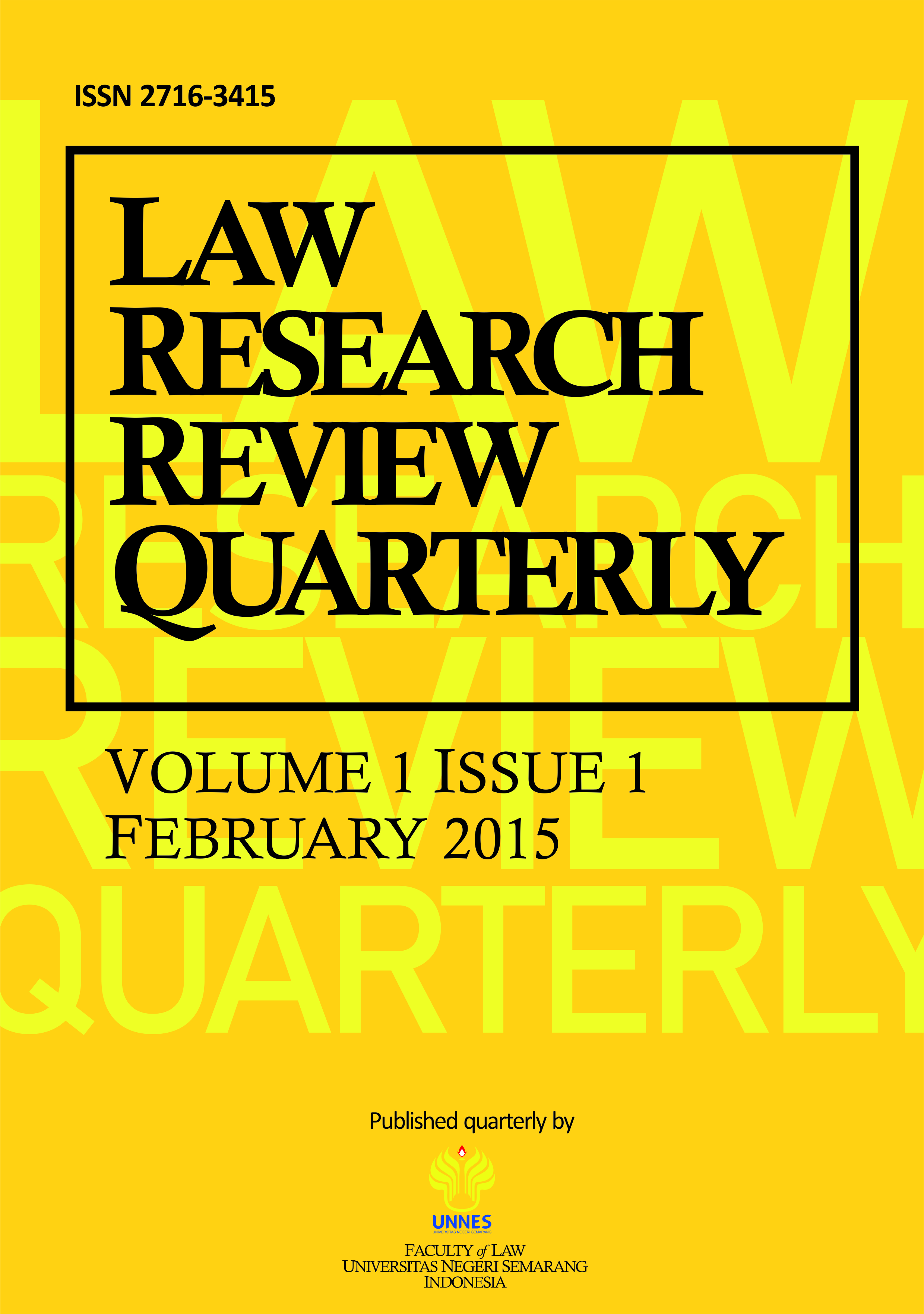Criminal Law Policy Regarding Plantation Criminal Subjects
Main Article Content
Abstract
The criminal system is the entire rule for imposing criminal sanctions, where the main criminal rules are in the Criminal Code (KUHP). Between the Criminal Code and criminal law outside the Criminal Code there must be a synchronization, in this case Article 103 of the Criminal Code says that the provisions in Chapters I through Chapter VIII Book 1, apply to criminal legislation outside the Criminal Code, unless it is deviated. In Law No. 18 of 2004 concerning Plantations, the subject of criminal law in the provisions of the midwifery of the law states everyone, which means applies to everyone in general, but everyone in the criminal provisions is not explicitly formulated in the general provisions of the law and direct damages connecting criminal law subjects with administrative law subjects by typing criminal law subjects together with administrative law subjects. Starting from the description above, the authors formulated a problem namely how the regulation / formulation of the subject of plantation criminal acts and how the future formulation policy regarding the subject of plantation criminal acts. Arrangement / formulation of the subject of plantation criminal acts in Law No. 18 of 2004 that is, every person in the regulation / formulation in the general provisions does not explain the limitations or scope of each person, based on Article 103 of the Criminal Code, the enactment of general principles in criminal law, where the subject of criminal acts in the law is natuurlijke person.
Article Details
All writings published in this journal are personal views of the authors and do not represent the views of this journal and the author's affiliated institutions. Author(s) are retain the copyrights of the Article. However, before publishing, it is required to obtain written confirmation from Author(s) in order to ensure the originality (Author Statement of Originality). The statement is to be signed by at least one of the authors who have obtained the assent of the co-author(s) where applicable.This work licensed under a Creative Commons Attribution-ShareAlike 4.0 International (CC BY-SA 4.0)
